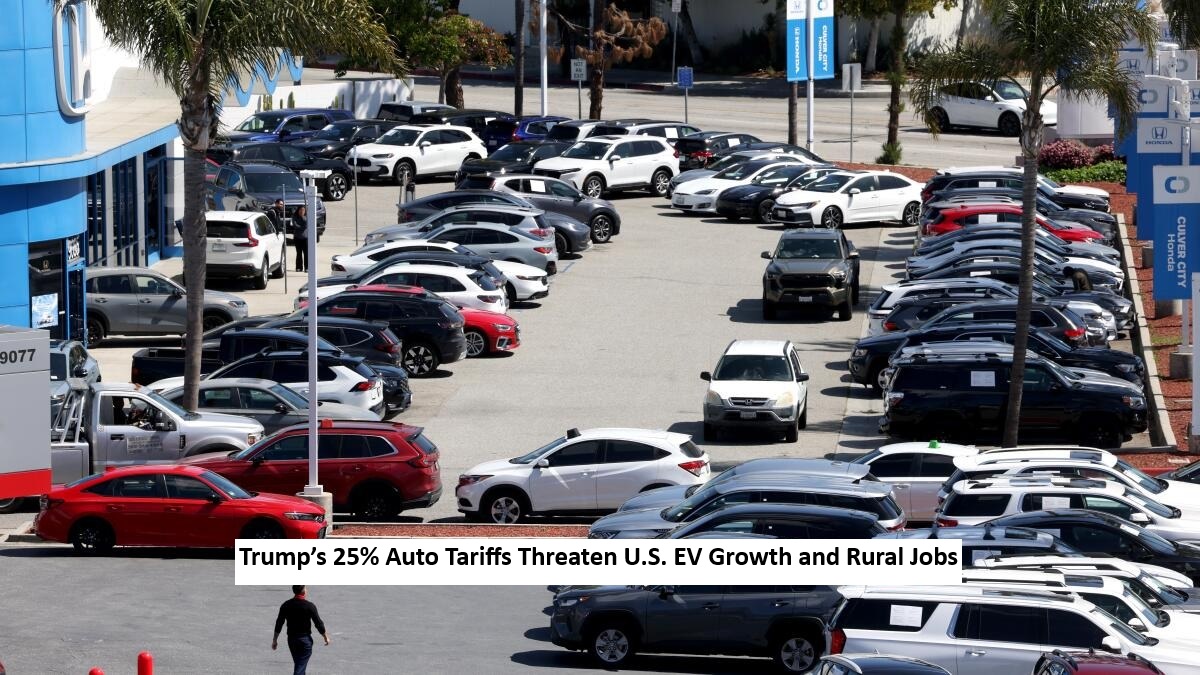
President Donald Trump’s decision to impose a 25% tariff on imported vehicles and parts has sent shockwaves through the auto sector. Car dealerships warn that average vehicle prices, currently around $48,000, could increase by as much as $10,000. Trump defended the tariffs, citing support for domestic manufacturing.
Electric Vehicle Sector Faces Setback
The electric vehicle (EV) industry, one of the fastest-growing areas in U.S. auto manufacturing, is particularly vulnerable. EV sales rose 7% last year, supported by Biden-era tax incentives and factory investments—especially in Republican-led states. But Trump has vowed to end the Inflation Reduction Act (IRA) and its $7,500 EV tax credit, which could drastically lower demand and threaten jobs in regions hosting new EV plants.
Tesla May Benefit from Domestic Production
Tesla is better positioned than most automakers to weather the tariffs. All of its 600,000+ U.S. vehicle sales in 2024 were assembled in California and Texas, and the company manufactures key components in-house. This reduces exposure to imported parts affected by the tariff policy.
Although CEO Elon Musk admitted the impact is “not trivial,” Tesla’s high domestic content offers a buffer compared to competitors more reliant on global supply chains.
Hyundai’s Georgia Plant Offers Strategic Advantage
Hyundai opened a new EV plant in Georgia on the same day Trump announced the tariffs. The company’s $21 billion investment was highlighted during a White House appearance with Trump, creating the impression of compliance with his economic agenda. However, the factory was initiated under Biden’s IRA incentives.
This plant supports a larger network of 17 parts facilities, now at risk if the EV credit is eliminated.
Contradiction in Policy: Tariffs Undermine Pro-U.S. Manufacturing Incentives
While the IRA tax credit requires automakers to source parts from the U.S. or allies, Trump’s plan to repeal the credit could undermine those efforts. Critics argue that eliminating the subsidy could save $168 billion over 10 years, but at the cost of American manufacturing growth.
Battery and EV Projects May Be Abandoned
A Princeton study suggests EV and battery factories planned after 2026 could be canceled if demand plummets due to tax credit removal. Currently, 228 supply chain projects representing 118,000 potential jobs are underway across the U.S.
Faced with job risks, some Republican lawmakers now favor phasing out the tax credit rather than ending it abruptly.
Read More: World Bank Approves 700 Million Dollars for Pakistan to Boost Economic Stability and Public Services

 Share
Share



